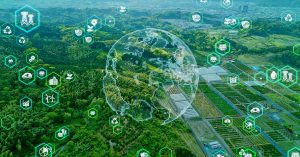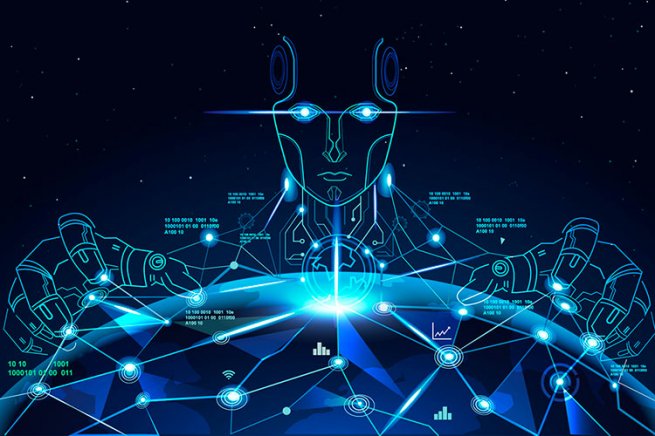The Evolution of Technology in 2025: A Glimpse into the Future
Technology is evolving at an unprecedented rate, and 2025 marks a pivotal year in many fields, from space exploration to artificial intelligence, quantum computing, climate change mitigation, and healthcare. In this article, we will explore the significant technological advancements that have shaped 2025 and the potential impacts on society. Through examples and case studies, we’ll discuss how these innovations are transforming industries, improving lives, and creating new possibilities for the future.
Space Exploration and Technology: Reaching New Frontiers

The Artemis Program and Return to the Moon
NASA’s Artemis program aims to send humans back to the Moon by 2025, with the long-term goal of establishing a sustainable lunar presence. This mission not only aims to return astronauts to the lunar surface but also aims to utilize the Moon as a stepping stone for deeper space exploration, particularly to Mars.
Benefits:
- Sustainable Lunar Presence: The Artemis program intends to lay the groundwork for human settlement on the Moon, paving the way for lunar resource mining, research, and potential space tourism.
- Technological Innovation: Innovations in space propulsion, life support systems, and communication technologies are crucial to the success of Artemis and will benefit broader industries.
- International Collaboration: Artemis is a global effort, involving space agencies from around the world, fostering collaboration that will extend beyond Earth.
Case Study: NASA’s Artemis I, an uncrewed test flight launched in 2022, tested the new Space Launch System (SLS) rocket and the Orion spacecraft, which will carry astronauts. This mission demonstrated key technological advancements that set the stage for Artemis II, which will be the first crewed mission to orbit the Moon in 2025.
SpaceX and Private Sector Space Travel
In recent years, the private sector has been revolutionizing space exploration, with companies like SpaceX leading the charge. SpaceX’s Starship project, a fully reusable spacecraft designed for interplanetary missions, aims to facilitate not only cargo delivery to space but also crewed missions to the Moon and Mars.
Benefits:
- Cost-Effectiveness: Reusable rockets significantly reduce the cost of space missions, making space more accessible for both governmental and private endeavors.
- Innovation in Spacecraft Design: SpaceX has pioneered innovations like the Falcon 9 rocket and the Starship spacecraft, pushing the limits of space technology.
- Private Space Tourism: By 2025, SpaceX and other companies like Blue Origin are bringing private space tourism closer to reality, offering commercial space flights for civilians.
Example: In 2021, SpaceX successfully launched Inspiration4, the first all-civilian space mission, demonstrating the potential of space tourism and expanding the possibilities of commercial space ventures.
Artificial Intelligence (AI) in 2025: Transforming Industries

AI in Healthcare
AI has emerged as a transformative tool in healthcare, aiding in diagnostics, personalized treatment plans, and drug discovery. In 2025, AI-driven technologies are not only making healthcare more efficient but also more accessible.
Benefits:
- Improved Diagnostics: AI systems can analyze medical data, such as images and patient histories, to detect conditions like cancer, heart disease, and neurological disorders earlier and more accurately than human doctors.
- Personalized Medicine: AI can help create personalized treatment plans by analyzing vast amounts of data, including genetic information, to tailor therapies to individual patients.
- Healthcare Accessibility: AI-powered telemedicine and virtual assistants make healthcare services more accessible, especially in underserved regions.
Case Study: IBM Watson Health is using AI to accelerate drug discovery and improve clinical decision-making. In 2025, Watson’s AI algorithms are helping doctors diagnose diseases faster, such as analyzing medical scans and clinical trials to offer the best treatment options.
AI and Ethical Considerations
As AI continues to develop, ethical concerns have come to the forefront. Issues such as AI bias, data privacy, and decision-making in autonomous systems are critical topics in 2025. The development of ethical AI ensures that technology is used responsibly and equitably.
Benefits:
- Bias Mitigation: Ethical AI research focuses on eliminating biases in AI algorithms that may lead to discrimination in sectors like hiring, criminal justice, and healthcare.
- Data Privacy: AI systems are being designed to prioritize user privacy and data security, ensuring that sensitive information is protected.
Example: The development of AI ethics frameworks by organizations like IEEE and Partnership on AI aims to guide the development of fair and transparent AI systems in the coming years.
Quantum Computing: Unlocking New Possibilities
Progress in Quantum Computing
Quantum computing is poised to revolutionize many fields, from cryptography to drug discovery and climate modeling. In 2025, companies like Google, IBM, and Intel are making significant strides in quantum computing, working toward practical, scalable quantum computers.
Benefits:
- Speed and Efficiency: Quantum computers have the potential to solve complex problems much faster than classical computers, which could accelerate advancements in fields such as materials science, cryptography, and artificial intelligence.
- Security: Quantum cryptography promises unbreakable security, safeguarding sensitive data from cyber threats.
Example: Google’s Sycamore processor achieved quantum supremacy in 2019 by solving a problem in 200 seconds that would take classical supercomputers 10,000 years to complete. In 2025, the focus is on overcoming challenges like error correction to make quantum computers more practical for real-world applications.
Climate Change and Environmental Technology: Addressing Global Challenges

Renewable Energy and Sustainable Technologies
In 2025, the focus on sustainable technologies has intensified. Solar, wind, and green hydrogen technologies are playing a crucial role in combating climate change by reducing greenhouse gas emissions and promoting clean energy sources.
Benefits:
- Carbon Reduction: Renewable energy technologies are helping reduce dependence on fossil fuels, significantly lowering carbon emissions.
- Economic Growth: The renewable energy sector is driving job creation and economic development, particularly in regions investing in solar, wind, and hydroelectric power.
Case Study:
Denmark’s Wind Energy sector is a global leader in renewable energy, with wind turbines providing nearly half of the country’s energy needs. Denmark’s commitment to renewable energy is a model for other nations to follow.
Carbon Capture and Green Hydrogen
In 2025, carbon capture technologies are being implemented to remove CO2 from the atmosphere, and green hydrogen is emerging as a clean fuel alternative to fossil fuels.
Benefits:
- Carbon Sequestration: Carbon capture and storage (CCS) technologies are helping to mitigate the effects of industrial emissions by capturing and storing CO2 underground.
- Sustainable Fuel: Green hydrogen, produced using renewable energy sources, is being explored as a clean alternative to natural gas, particularly in industries like transportation and manufacturing.
Example: The H2Future Project in Austria is testing green hydrogen for use in heavy industry, potentially revolutionizing sectors like steel production and shipping.
The Future of Transportation: Electric and Autonomous Vehicles
Electric Vehicles (EVs) and Sustainable Mobility
The rise of electric vehicles (EVs) in 2025 is a major milestone in the push for sustainable transportation. With governments and automakers investing heavily in electric vehicle infrastructure, EVs are becoming more accessible and affordable for the general public.
Benefits:
- Environmental Impact: EVs have zero tailpipe emissions, significantly reducing air pollution and contributing to cleaner cities.
- Energy Efficiency: Electric vehicles are more energy-efficient compared to traditional gasoline-powered cars, reducing overall energy consumption.
Example: Tesla continues to lead the charge in the EV market, with its latest models offering improved range and performance. In 2025, many other automakers, including Ford and Volkswagen, have launched competitive EV models.
Autonomous Vehicles
Self-driving cars are becoming more advanced in 2025. With the development of AI, machine learning, and sensor technologies, autonomous vehicles are expected to revolutionize how we think about transportation.
Benefits:
- Safety: Autonomous vehicles can potentially reduce human error on the road, lowering traffic accidents and fatalities.
- Efficiency: Self-driving cars can optimize traffic flow, reduce congestion, and improve fuel efficiency.
Example: Waymo, a subsidiary of Alphabet (Google’s parent company), has been testing autonomous vehicles in cities like Phoenix, Arizona. In 2025, the company is working toward expanding autonomous ridesharing services.
Conclusion:
The year 2025 represents a significant turning point in the evolution of technology. From the vastness of space to the intricacies of AI and quantum computing, we are witnessing breakthroughs that will shape the world for years to come. These advancements not only promise to solve some of humanity’s most pressing challenges, but also open up new opportunities in space exploration, healthcare, and sustainable living. As we move forward, the key to maximizing these technologies lies in responsible innovation, global collaboration, and ethical considerations.












